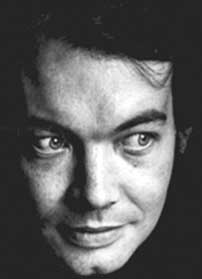This article may be in need of reorganization to comply with Wikipedia's layout guidelines .(September 2012) |
Bill Graham | |
|---|---|
 | |
| Born | 1951 Ireland |
| Died | 11 May 1996 (aged 44–45) |
| Occupation | Journalist |
| Nationality | Irish |
Bill Graham (1951 – 11 May 1996) was an Irish journalist and author. He attended Blackrock College and Trinity College, Dublin and resided in Howth. In addition to authoring several books, Graham wrote for Hot Press magazine from its founding. He died of a heart attack at forty-four on 11 May 1996 being survived by his mother Eileen.
Contents
Graham's long time colleague and Hot Press editor Niall Stokes described him: "In many ways, he was a founding father of modern Irish music. He inspired a whole generation of Irish fans and musicians to look at the world in a different and broader light. And he was good on more than music too. He felt a kinship with Northern Ireland and the people on both sides of the sectarian and political divide there that was unusual in those who were brought up within the narrow confines of the culture of Ireland in the '60s and '70s – and his political writing reflected this. And he was also ahead of the game in terms of his appreciation of the importance of the politics of food and the position of the developing world in the new era." [1]
Graham was instrumental in the formation of Irish rock band U2, having brought them to the attention of their manager Paul McGuinness. [2] At a recent exhibition of early group photos, McGuinness remembered the role Bill Graham played by introducing him to the band. [3] Despite being widely known as the man who "discovered" U2, it was a title he disavowed. He wrote enthusiastically about the band, giving them their first exposure. Both guitarist The Edge [4] and Bono [5] have explained Graham's role in the band's development.
John Waters observed that "It is often said that Bill 'discovered' U2. This is untrue. Bill created U2, through his enthusiasm for them. He gave them a reflection of their own possibilities and they only looked back that once"... He had a "deep knowledge of virtually every form of popular and roots music... and Waters goes on to credit him as 'the first Irish writer to write about the connection between Irish political culture and Irish rock'n'roll'. [6]